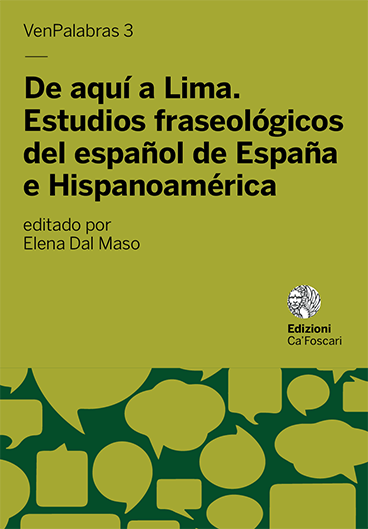- search 353 views
- file_download 23 download
- keyboard_capslock metadata
-
mark_email_readIscriviti alla newsletter
El que no tiene de inga, tiene de mandinga
Un apunte historiográfico sobre la fraseología en la lingüística peruana
abstract
This paper aims to open a space for the study of phraseology from historiography, specifically, the Peruvian linguistic historiography related to the dictionaries and lexical studies, that is, the theoretical lexicography of the Peruvian Spanish. Since the early recollection of the Peruvian colloquial expressions by Juan de Arona (1883), going through the studies of Benvenutto Murrieta (1936), the glossary of Vargas Ugarte (1953) and the most recent dictionaries of local Peruvian Spanish, one notices the treatment that the proverbs have received in Peruvian lexicography. The interest for understanding the creation and evolution of the phraseological utterances and the figure of Ricardo Palma, as well as his presence in the Peruvian slang, is observed. The register of set phrases seems to have started with the perception of some phraseological variants before the lexicographers realized the existence of its own original phraseology.
Keywords: Peru • Latin American Spanish • Linguistic historiography • Proverbs • Idioms




